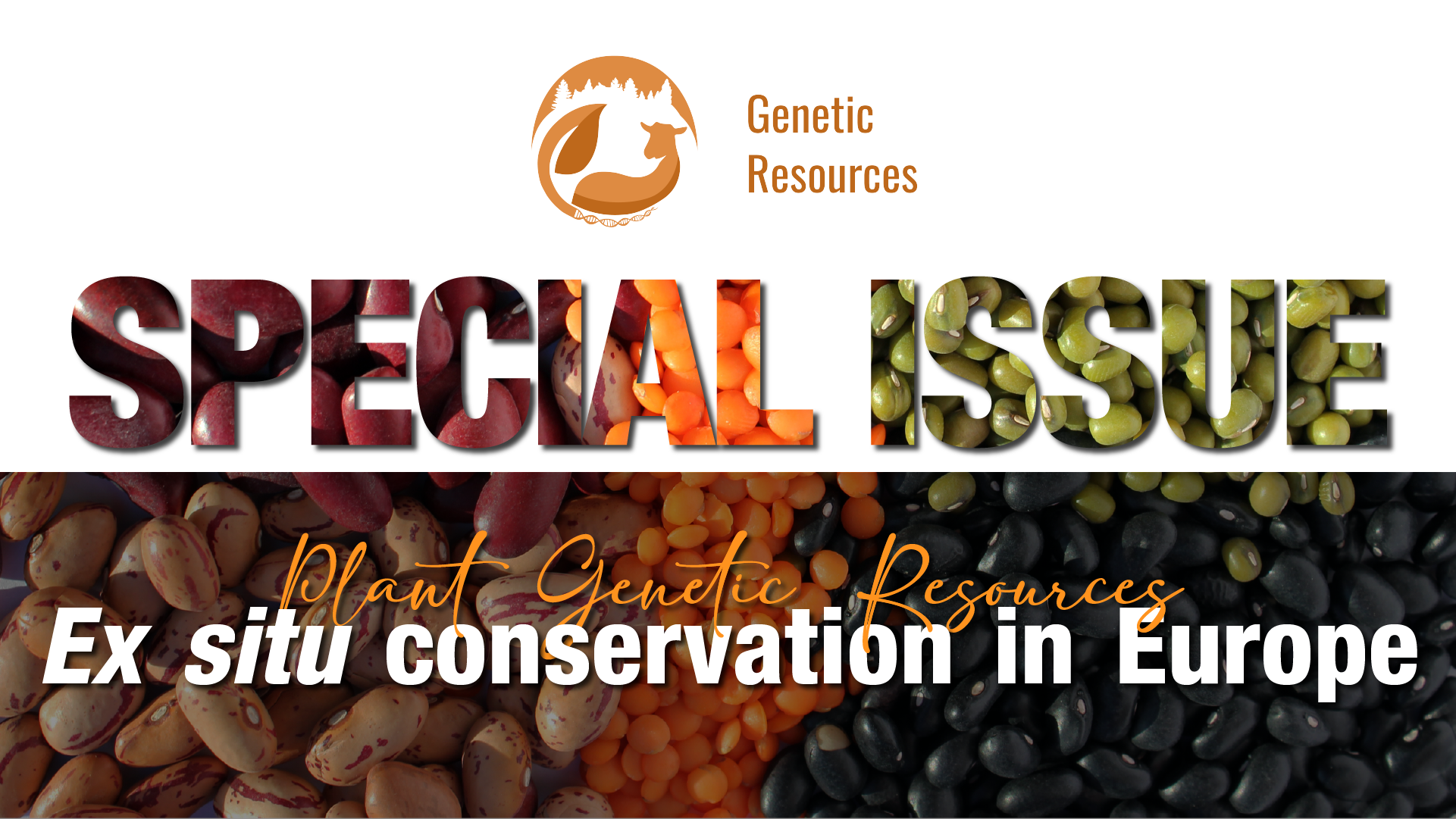Special Issue Ex situ conservation of plant genetic resources in Europe
A journey through history, mission, challenges and future opportunities

Description
Climate change, a growing human population, changes in consumer preferences and the need to minimize negative impacts on ecosystems are posing new challenges to global food and nutrition security. Plant genetic resources (PGR) represent a fundamental asset to widen and diversify the genetic basis of modern crop cultivars and provide useful traits for breeding. The ex situ conservation of PGR in genebanks is currently the most effective strategy to avoid losses in crop diversity and enhance the availability of these resources.
Unfortunately, a high level of genetic erosion has been observed in the last few decades in several European areas. At the same time, the rediscovery of landraces and old cultivars, linked with traditional food products has occurred in several European countries, offering new opportunities for farmers and food industries. In this scenario, it is of fundamental importance to conserve and keep available PGR in the long term.
In Europe, more than 2 million accessions of crops and crop wild relatives (CWR) are conserved ex situ by around 400 institutes and are listed in the European Search Catalogue for Plant Genetic Resources (EURISCO). These accessions account for half of the total PGR accessions listed in the global Genesys database and about a quarter of all PGR accessions actively conserved in genebanks globally. European genetic resource centres vary greatly in their mission, and their genebanks vary in the number of conserved accessions, conservation and distribution methodologies, data information and quality management systems. The European Cooperative Programme for Plant Genetic Resources (ECPGR) is a collaborative programme among most European countries working on multiple initiatives aimed at ensuring the long-term conservation and facilitating the utilization of PGR in Europe. The PGR Strategy for Europe highlights gaps and necessary actions, which should be addressed in the coming decade to ensure long-term PGR availability through their sustainable use and conservation. Consolidating and sustaining ex situ conservation is a priority action within the strategy, with several important targets identified that should be achieved by 2030.
This Genetic Resources special issue aims to provide an updated overview of ex situ conservation activities in Europe. European genebank managers and PGR scientists are invited to submit reports on their ex situ conservation activities, including the collections they preserve, the history, mission and scope of the genebank as well as its strengths and weaknesses. Contributions from botanical gardens, community seedbanks, field collections and other institutions working on ex situ conservation of PGR are also encouraged. Moreover, this issue welcomes articles and opinion papers aimed at informing stakeholders on current and future projects, initiatives or other emerging topics on the enhancement of the conservation and sustainable use of crop diversity in Europe. This special issue will thus increase the sharing of information on ex situ conservation of PGR in Europe, help foster future cooperation and allow to share globally the lessons learnt.
Submitting your manuscript to the special issue
Contributors are invited to contact special issue editor Filippo Guzzon (email: f.guzzon@cgiar.org) with their proposal, which should include a title, abstract and relevant keywords. Proposals should be submitted by 30 April 2024.
Manuscripts can be submitted to the special issue by registering on the journal website and logging into the author dashboard. You can then submit the manuscript by using this link and selecting “special issue” in the manuscript type. Manuscripts can be submitted until 31 October 2024. All submissions that pass editor check are peer-reviewed. Accepted papers will be published continuously in the journal (as soon as accepted) and will be listed together on the special issue website.
Authors are requested to follow the Author guidelines, ensuring that manuscripts are properly formatted and written in good English. Submitted manuscripts should not have been previously published or be under consideration for publication elsewhere.
Genetic Resouces is a full open access journal, and charges no fee for publishing or accessing articles.
Contact f.guzzon@cgiar.org with any questions on the special issue.
Special issue keywords:
Crop diversity, ex situ conservation, genebanks, plant genetic resources, seedbanks.
Important Deadlines:
- Article outlines to be submitted by 30 April 2024;
- Article selected for submission, to be submitted by 31 October 2024.


 This journal has been conceived as part of the
This journal has been conceived as part of the